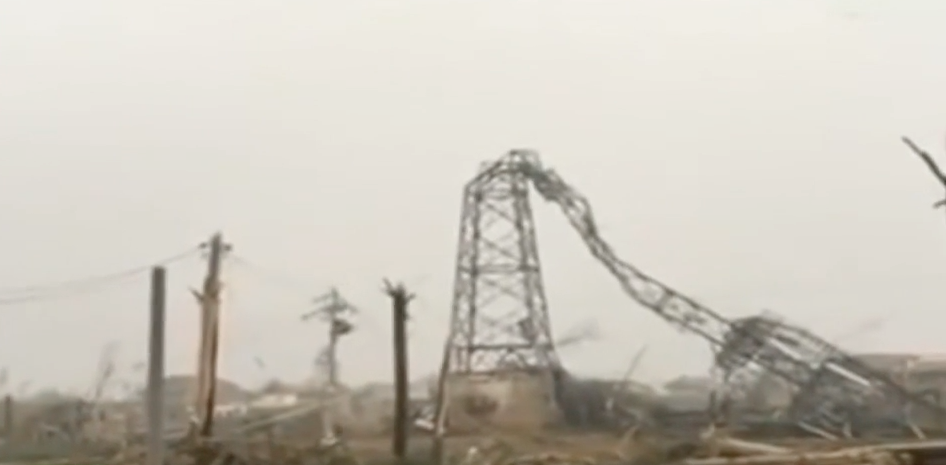Do you know what to do during a power outage? Here are 5 essential things you need
By Michelle Simmons // Nov 03, 2018
TAGS: Collapse, electricity, emergencies, emergency gear, grid down, off grid, Power Outage, preparedness, prepper, prepping, survival

A power outage can occur so sudden at times, leaving most people unprepared. On average, a power outage may last for up to five hours, which may disrupt your daily habits. However, extreme weather conditions can cause power outages for months, and it would require a complete lifestyle change because it could be dangerous. Here are five essential things you will need in case a power outage occurs. (h/t to ModernSelf-Reliance.com.)
- A plan: Having a plan is probably the most important thing you need during a power outage. Planning beforehand can save time and stress during a power outage. This is especially important for people with special needs, such as oxygen or other medical devices that need to be constantly turned on. You have to determine whether you need a backup power, such as a gas generator or battery system, immediately. Address any special medical needs you or your family members have. Plan everything according to your and your family's needs.
- A cooking method: During a power outage, your electric stove will be useless. Fortunately, there are many ways to cook food without electricity. These include gas or charcoal grill, propane stove, backpacking stove, alcohol stoves, fireplace, and outdoor fire-pit. (Related: Grid down? 6 Ways to cook when there’s absolutely no electricity.)
- A water method: Water is essential for survival. You need to have emergency extra water that is clean and drinkable in case the tap stops producing clean water. You will also need to find a way to purify water, such as a portable water filter, so that you will have many water sources.
- A light method: You will need a source of light when a power outage occurs, especially at night. Prepare light sources such as a headlamp, flashlight, and a battery lantern. A headlamp can be attached to your head, but can hurt the eyes of other people. A flashlight is particularly useful for dealing with the breaker box in the basement, while a battery lantern can light up a whole room.
- A peeing method: A good backup solution for this is to prepare a bucket with trash bags and a cat litter. Put the trash bag over the empty toilet, under the seat, pee, add the cat litter, and close the lid. When the bag gets full, seal it in the bucket or put it out to the trash.
Other things to do when the power goes out
Immediately report power outage to your local electric company.
- Do not go near downed power lines, flooded areas, and debris. When you see fallen wires, do not touch them and treat them as if they are energized.
- Keep your freezer and refrigerator doors closed. Food in a fully loaded freezer will remain frozen for up to two days, while a half-full freezer can keep food frozen for a day. For refrigerated items, pack them into a cooler filled with ice.
- Do not operate generators inside your home or in an enclosed space and follow safe operating procedures.
- Tune in to your battery-operated radio for news and weather updates.
- Make sure that the area where you will use portable stoves, kerosene heaters, or lanterns is well-ventilated.
- If the weather is hot, close drapes and blinds, drink lots of water, take your pets to a cool basement location, and go to an air-conditioned place, such as malls or library, if needed.
- If the weather is cold, open your blinds during the day, cover the windows at night, do not drink alcoholic beverages, and go to a central room where there is an alternative heat source. If temperature indoors goes below 55 F, open your faucets slightly to prevent pipes from freezing.
Read more news stories on survival tips during power outages and other emergency situations by going to Preparedness.news.
Sources include:
Related Topics
Collapse electricity emergencies emergency gear grid down off grid Power Outage preparedness prepper prepping survivalLatest News
04/27/2023 / By Ethan Huff
Related News
04/27/2023 / By Belle Carter
04/27/2023 / By Kevin Hughes
04/26/2023 / By Arsenio Toledo
04/26/2023 / By Arsenio Toledo
04/26/2023 / By Ramon Tomey
04/26/2023 / By Ramon Tomey
Take Action:
Support NewsTarget by linking to this article from your website.
Permalink to this article:
Copy
Embed article link:
Copy
Reprinting this article:
Non-commercial use is permitted with credit to NewsTarget.com (including a clickable link).
Please contact us for more information.
Please contact us for more information.





















